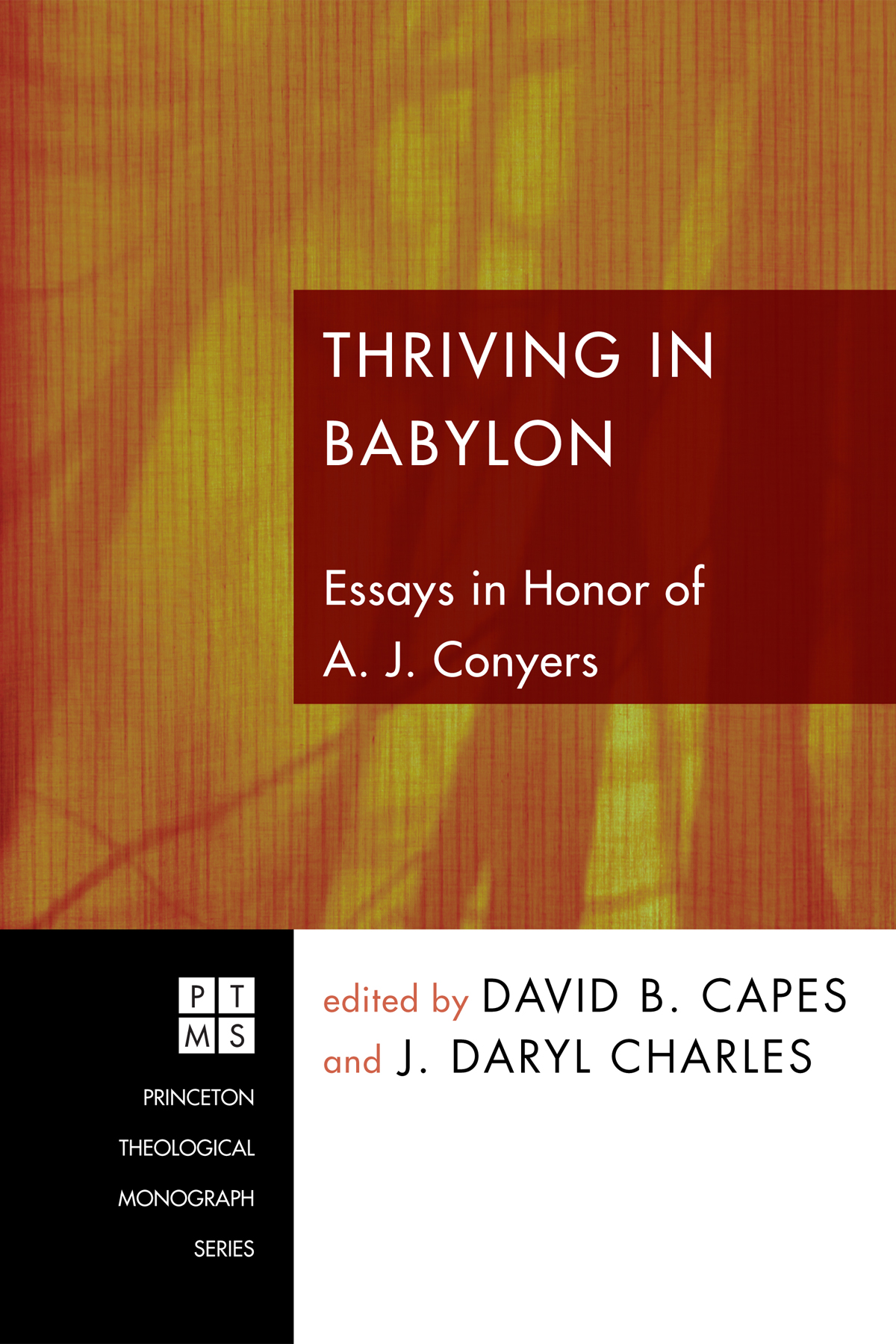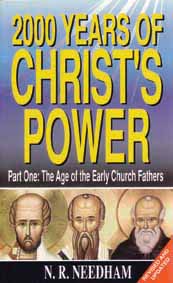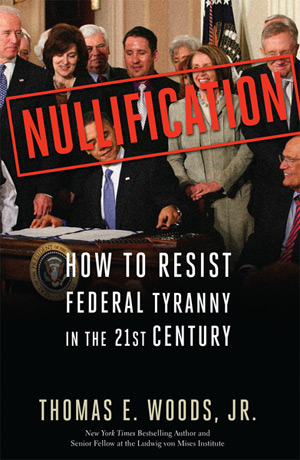
Augustine on Scripture and Speculation

It is too much fun to have a reason to wade through Augustine. In his The Trinity, Augustine says the following about our need to attend to Scripture. He writes:
"No, in this matter we have the authority of God's scriptures, which our minds should not stray from, the solid foundation of divine utterances whcih we must not leave, to plunge down the steep slopes of our own guesswork into places where neither our senses can guide us nor the clear reason of truth can enlighten us."
The Trinity, III.22.
- Details
- Category: Recommended Reading Recommended Reading
- Published: 12 November 2010 12 November 2010
- Hits: 4722 4722
A.J. Conyers Book Launch and Dinner

I was blessed to get to know A.J. "Chip" Conyers when I was a Ph.D. student at Baylor University. It is exciting to share that David Capes and Daryl Charles have edited a book of essays in honor of Chip: Thriving in Babylon: Essays in Honor of A.J. Conyers (Wipf and Stock, 2010). With a Foreword by Jurgen Moltmann, and essays by Ralph Wood, David Lyle Jeffrey, Millard Erickson, Robert Sloan, Jean Bethke Elshstain, Dan Williams and others, it promises to be a wonderful book. The book will be out in about one month. As a type of book launch, and as a way to get friends of Chip together, there will be a special "dutch treat" dinner on Saturday, November 20th, in Atlanta, Georgia (during the annual Society of Biblical Literature meeting). We are working out the details, but it looks as if it will be on Saturday evening for certain. We will have copies of the book available, and we look forward to "launching" the book. You are invited. Look for more details. If you are interested in attending, please contact me (Brad Green) at 731-431-5928, This email address is being protected from spambots. You need JavaScript enabled to view it..
Details: · What?: Book Launch/Dinner for Thriving in Babylon: Essays in Honor of A.J. Conyers (Wipf and Stock, 2010). · Where?: “Pittypat’s Porch” restaurant, 25 Andrew Young International Boulevard, Atlanta, Georgia 30303 (404-525-8228) This is the link to the restaurant web site: www.pittypatsrestaurant.com · When?: Saturday, November 20, at 6:00 pm. · Who?: Any and all folks who have an interest in Chip’s life and work (i.e., you do not have to have had some “special” tie to Chip to attend). Please come and enjoy and celebrate! · Why?: to celebrate the publication of this book of essays written in honor of A. J. Conyers. · What to do?: e-mail me (Brad Green), This email address is being protected from spambots. You need JavaScript enabled to view it. or call me, 731-431-5928 to let me know you plan on attending. · Price?: $30.00. This covers everything except gratuity.
- Details
- Category: Recommended Reading Recommended Reading
- Published: 07 October 2010 07 October 2010
- Hits: 6555 6555
Nick Needham and 2000 Years of Christ's Power

I first discovered Nick Needham when I purchased his book, The Triumph of Grace, a book in which Needham collects Augustine's writings on the grace of God. It is a wonderful book. Nick was kind enough to put in a good word for a recent book I edited and published. Today I received in the mail volumes 1-3 (more to be written) of 2000 Years of Christ's Power (Grace Publications). It looks wonderful, and promises to be a substantial overview of church history. Nick is my kind of guy--an evangelical who believes that the God of Holy Scripture might just have been at work in the Christian church over the last 2000 years. You can now get all three at a great price at Wesminster Theological Seminary's online book store. Happy reading!
- Details
- Category: Recommended Reading Recommended Reading
- Published: 05 October 2010 05 October 2010
- Hits: 5669 5669
The Second Book You Should Read on Constitution Day

After reading the United States Constitution, what is the next thing you should read in terms of thinking about the U.S. Constitution? My bet is on Thomas Woods' new book, Nullification: How to Resist Federal Tyranny in the 21st Century (Regnery, 2010). Nullification is a cherished component of american political thought, although it has been ignored for some time. In a nutshell, the idea of "nullification" is rooted (in a U.S. context) in the U.S. Constitution. The States gave certain enumerated and specified powers to the federal government. Thus--at the human level--power flows from the individual states and the people to the federal government. That is, the federal government receives its marching orders--its power--from the states. "Sovereignty"--in the political sense, and at the human level--resides in the individual states and the citizens of the various states. So what happens when the federal government usurps power, or tries to, and enacts legislation which goes beyond its enumerated and specified powers--powers granted to the federal govenment by the states? Well, the various states are duty bound to simply say, "Nice try, but you have overstepped your bounds. We simply cannot, and are morally bound not to, enforce such a law." It is not simply that the states can ignore such federal laws, the states are--ultimately--duty bound to ignore such laws, in order to protect the citizens of the states who granted and delegated such powers in the first place. But let Tom Woods walk the reader through the issues. His book contains some 125 pages of appendices with primary source documents showing the treasured place of nullification in the history of american political thought. For those who do better with a lecture, you can find a good lecture by the author, Tom Woods, here. Enjoy.
- Details
- Category: Recommended Reading Recommended Reading
- Published: 18 September 2010 18 September 2010
- Hits: 5038 5038